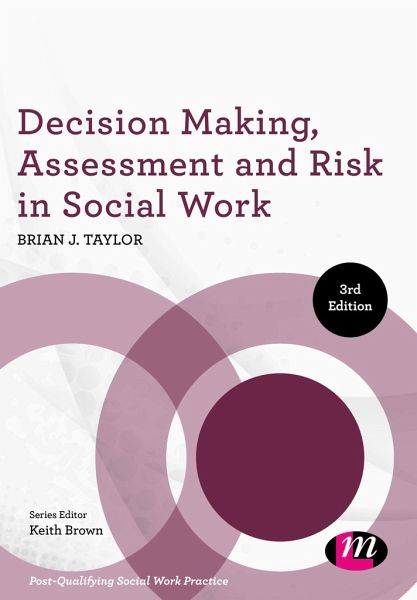
Decision Making, Assessment and Risk in Social Work
Versandkostenfrei!
Versandfertig in 6-10 Tagen
32,99 €
inkl. MwSt.
Weitere Ausgaben:

PAYBACK Punkte
16 °P sammeln!
At a time when accountability and the avoidance of risk are increasingly demanded of social workers, the ability to make clear and informed decisions is essential. This book, written for practicing social workers undertaking their ASYE and compulsory CPD, has been designed to help professionals make sound judgments in increasingly complex contexts and under pressure. The focus is on empowering front-line professionals through reflective practice, so that they are able to draw on multiple factors and perspectives and make sound problem-solving judgements. The book begins with the core concepts,...
At a time when accountability and the avoidance of risk are increasingly demanded of social workers, the ability to make clear and informed decisions is essential. This book, written for practicing social workers undertaking their ASYE and compulsory CPD, has been designed to help professionals make sound judgments in increasingly complex contexts and under pressure. The focus is on empowering front-line professionals through reflective practice, so that they are able to draw on multiple factors and perspectives and make sound problem-solving judgements. The book begins with the core concepts, client focus, and legal background before moving on to consider the collaborative processes and the nature of individual judgements. It then considers particular dimensions of social work decision making, such as safeguarding, taking risks, assessment and dynamic decision tools and processes. It then concludes by look at the organisational context of decision management, with a focus on supervision, training and effective communication.




